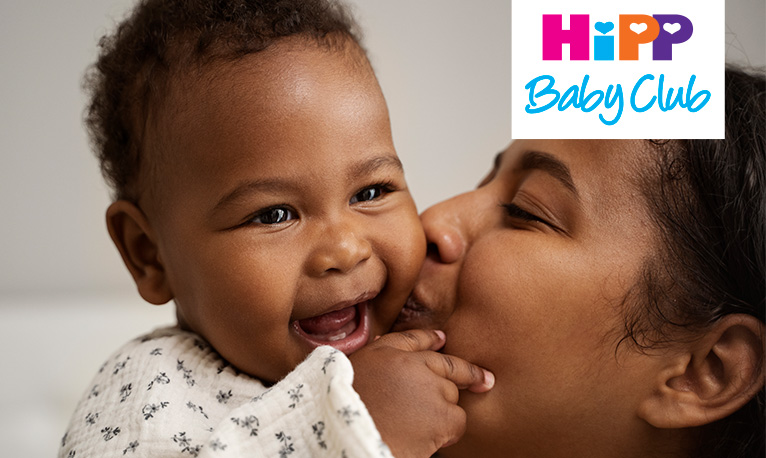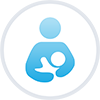Week 3 and 4
You won't be aware of it yet, but you've just become pregnant – congratulations!
Once the egg is fertilised, it travels along the fallopian tube and embeds itself in the wall of the womb (uterus).
It starts to produce a hormone called ‘human chorionic gonadotrophin,’ which stops you having a period and shows in your urine - this is what home pregnancy testing kits can detect when you miss your first period.
The first trimester
The first three months of pregnancy is a very important time in your baby’s development, as this is when the main structures of the body and organs begin to form. Be extra-careful about taking any drugs or medications - read the packaging very carefully and check with your doctor or pharmacist before you take anything.
It’s best to avoid alcohol, too, in the first trimester (though if you had a glass of wine before you realised you were pregnant, there's no need to panic!).Check the current guidelines on alcohol during pregnancy.
Think about eating healthily
Many mums-to-be decide to eat and drink extra-healthily during pregnancy. Choosing organic foods can help you plan a healthy diet without worrying about pesticide residues or artificial additives. Visit the following NHS pages for more information on eating healthily during pregnancy.
There are also a few foods that are best avoided during pregnancy. Find out more here.
Are you taking any medication?
It is important that you check any medications you are taking with your doctor, to make sure they are safe to take during pregnancy.
What it’s like for the mum-to-be in week 4
Even before the positive test result tells you for certain that you’re pregnant, you may experience all sorts of confusing feelings. In week 4 of your pregnancy, you’re riding a rollercoaster of emotions and you might feel like crying a lot of the time. This is another sign that you’re pregnant (though it’s not a reliable one).
This feeling is due to hormones produced by your body to protect your pregnancy.
You’ll be eagerly waiting for the moment when you find out if you’re pregnant, whether by missing your period, taking a test or getting an ultrasound scan.
Potential signs and symptoms
Breasts feel tense and sore
Your breasts may now start to feel tense and sore. They are beginning to get bigger as your mammary glands swell, so that they can feed your child once they’re born. Sore breasts are one of the signs that suggest you’re pregnant if a reliable test is not yet possible.
Increased discharge
You may also experience a slight pulling sensation in your abdomen or pain in various parts of your back for no obvious reason. Another possible symptom is increased discharge, which happens as a result of the mucus plug (which seals the cervix during pregnancy and loosens just before birth) becoming thicker. The plug forms a sort of protective barrier for your unborn baby, blocking pathogens and harmful bacteria from reaching the uterus.
Feeling tired, weak or listless
If you sometimes feel tired, weak or listless, this is due to hormones causing your metabolism to work more slowly than usual. This is a temporary symptom and will ease in the next two months of your pregnancy.
Nausea
The fluctuating hormone levels in your body can result in one very common complaint among pregnant women: nausea. This typically occurs in the morning after you get up, as your body has been releasing large quantities of hCG (the pregnancy hormone) overnight. Pregnancy tests should therefore be taken in the morning when you pee for the first time after getting up, because this is when the hormone is at its highest concentration, enough for the test to give you a meaningful result.
Tip: After vomiting, rinse your mouth out and brush your teeth in order to keep them clean and healthy.


